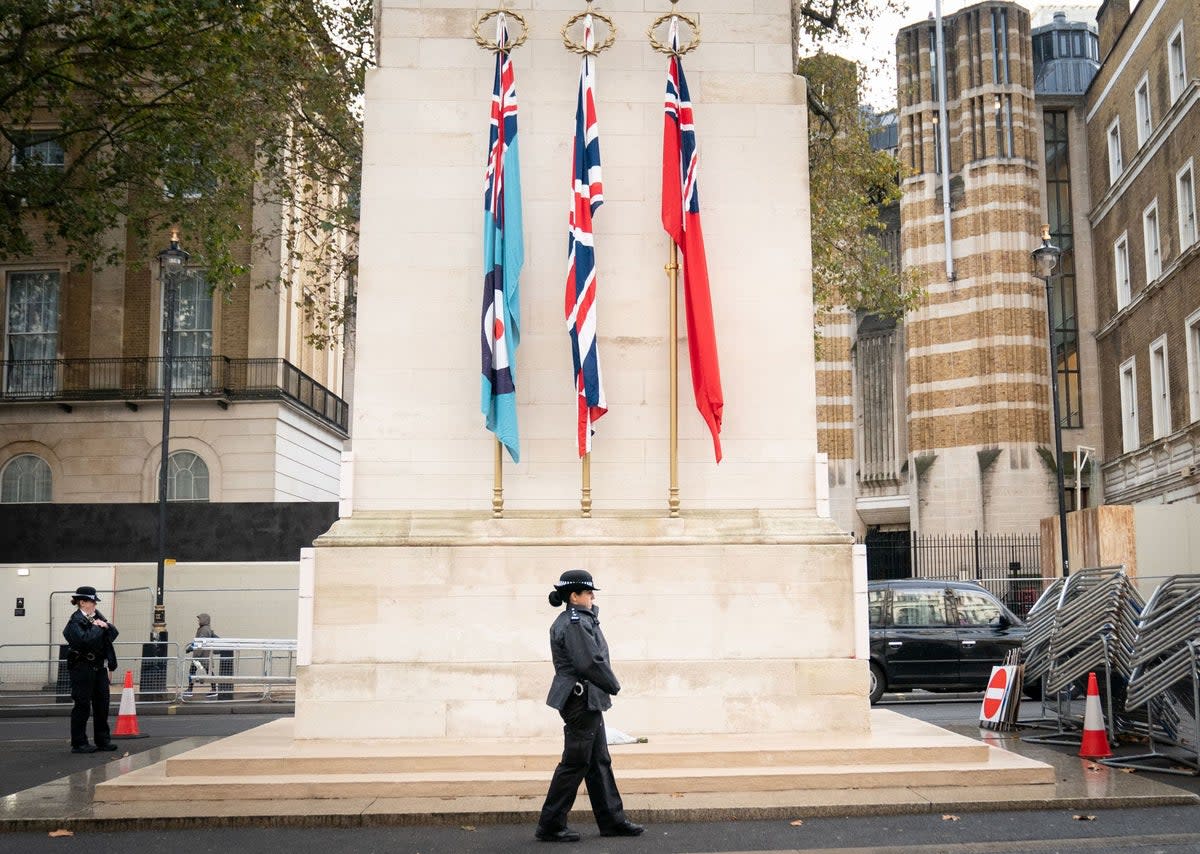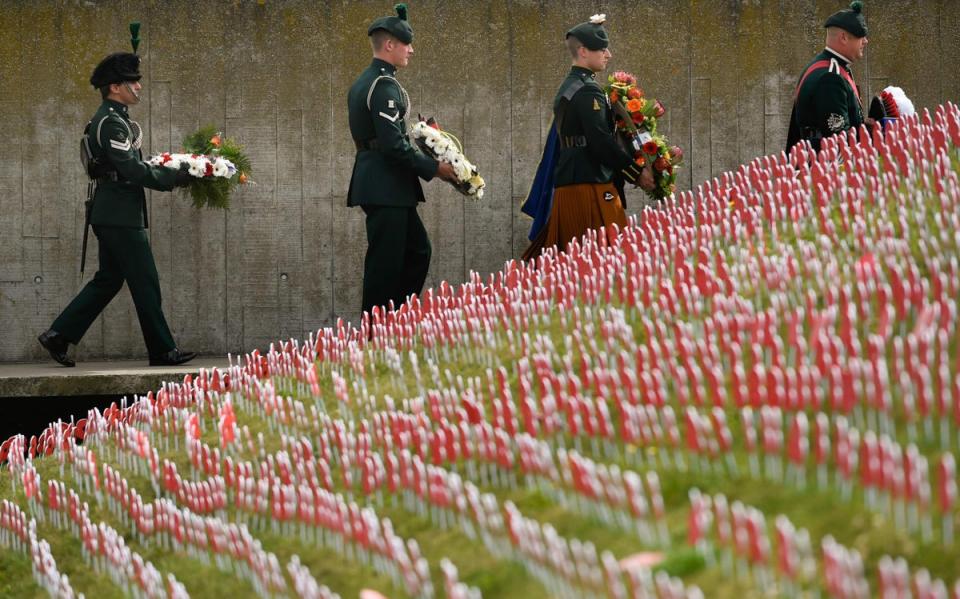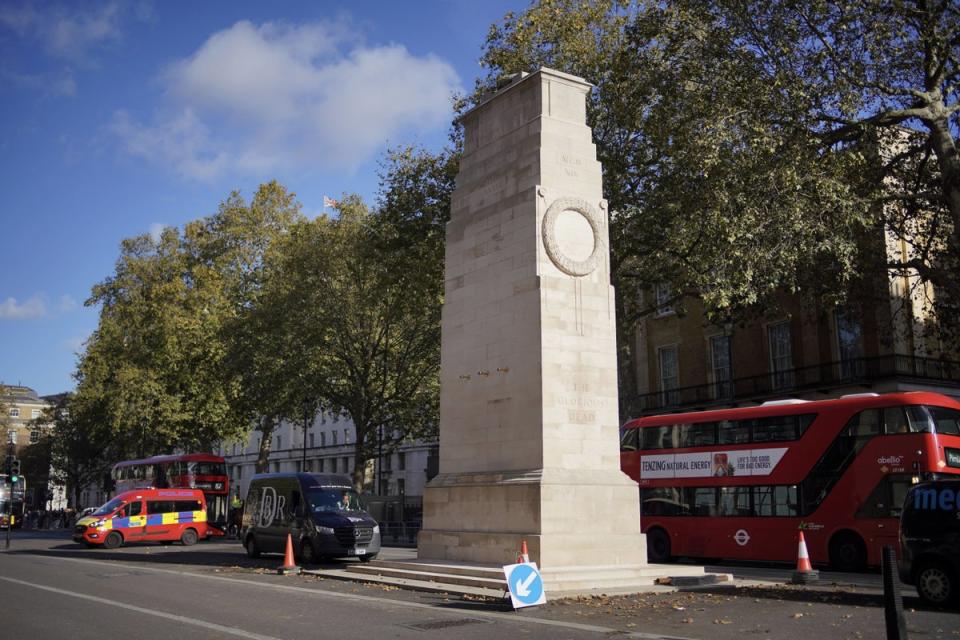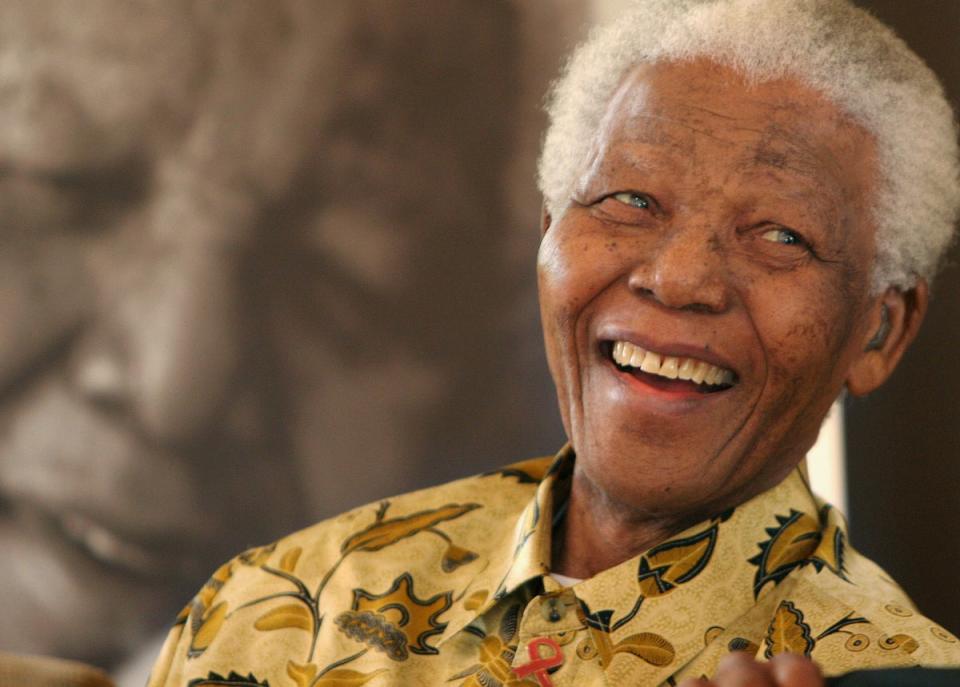Remembrance Day 2023: War quotes to celebrate Armistice Day

“At the going down of the sun and in the morning, we will remember them,” Laurence Binyon wrote.
His words in his poem For the Fallen have become timeless and are read every year on Remembrance Sunday as Britain comes together to pay respect to all of those who have died in conflict since the First World War.
Britons are wearing red, white, purple and black poppies this week as a tribute to the Fallen while there are set to be many such events for Armistice Day in London over the weekend.
The first Armistice Day was observed on November 11, 1919, to mark the first anniversary of the end of the First World War, and Remembrance Sunday is commemorated on the nearest Sunday.
And if you are going to events in London, see our travel advice.
If you do attend events or watch any on television you are likely to hear Binyon’s words on Sunday but what other quotes have been associated with Remembrance Sunday?

In Flanders Fields
Published in 1915 after the end of the First World War, this poem by John McCrae was first published in Punch.
The poem is better known in the US where it is read on Veterans Day and Memorial Day:
“Take up our quarrel with the foe:
To you from failing hands we throw
The torch; be yours to hold it high.
If ye break faith with us who die
We shall not sleep, though poppies grow
In Flanders fields.”

Winston Churchill
Sir Winston Churchill, Britain’s wartime prime minister, paid tribute to the Royal Air Force in their battle against the German Luftwaffe.
“Never in the field of human conflict was so much owed by so many to so few,” he said in 1940 after the Battle of Britain.
A year later he gave another famous speech at Harrow School. “This is the lesson: never give in, never give in, never, never, never, never — in nothing, great or small, large or petty — never give in except to convictions of honour and good sense.”
And Death Shall Have No Dominion
Written in 1933, Dylan Thomas’s poem has been attributed to be about the impact of war and its consequences.
The title comes from St. Paul's Epistle to the Romans.
“Though they go mad they shall be sane,
Though they sink through the sea they shall rise again;
Though lovers be lost love shall not;
And death shall have no dominion.”

For the Fallen
Laurence Binyon’s poem was first published by The Times in 1914 and is seven stanzas long with usually just the fourth now being repeated.
The words have come to symbolise all casualties of war.
“They shall grow not old, as we that are left grow old:
Age shall not weary them, nor the years condemn.
At the going down of the sun and in the morning
We will remember them.”
An Irish Airman Foresees His Death by WB Yeats
Written by Irish poet WB Yeats in 1918, this poem highlights the contribution made by Irish soldiers fighting for Britain during The Great War, during a period when they were also trying to establish independence for Ireland.
"I know that I shall meet my fate
Somewhere among the clouds above;
Those that I fight I do not hate,
Those that I guard I do not love;
My country is Kiltartan Cross,
My countrymen Kiltartan's poor,
No likely end could bring them loss
Or leave them happier than before."
Dulce et Decorum Est by Wilfred Owen
Wilfred Owen is widely regarded as one of the best poets of the First World War, often depicting the conflict in its true horror.
Owen himself died in action on November 4, 1918, almost exactly a week before the Armistice was signed, with much of his work being published posthumously after the war was over.
"Gas! Gas! Quick, boys! – An ecstasy of fumbling,
Fitting the clumsy helmets just in time;
But someone still was yelling out and stumbling,
And flound’ring like a man in fire or lime
Dim, through the misty panes and thick green light,
As under a green sea, I saw him drowning."
Heroes and Sheroes
“How important it is for us to recognize and celebrate our heroes and she-roes,” US poet Maya Angelou is credited with saying.
"We live in direct relation to the heroes and sheroes we have. The men and women who without knowing our names or recognizing our faces, risked and sometimes gave their lives to support our country and our way of living. We must say thank you."

Make peace with your enemy
And to finish off, this is a call from Nelson Mandela.
“If you want to make peace with your enemy, you have to work with your enemy. Then he becomes your partner.”
The South African leader is credited with these words in a speech in the early 1990s.


